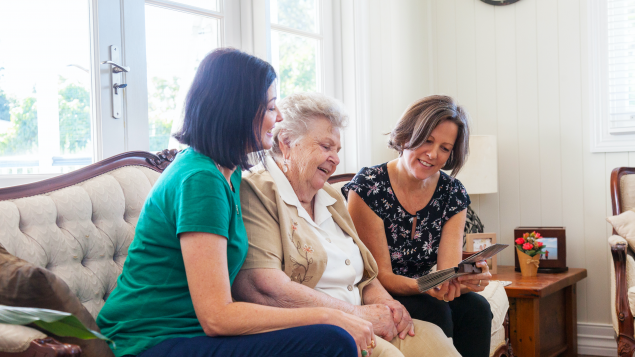
Relationship Based Home Care
What is relationship-based home care?
Relationship-based home care is an innovative type of care designed to deliver impact, not just inputs. It is organised around the needs of the care recipient and his or her family, rather than around the completion of a predefined set of tasks. Relationship-based home care is often referred to as outcomes-based home care or person-centred home care.
Relationship-based home care is innovative in that it aims to keep care recipients healthy and independent, in addition to addressing any acute needs. By putting the individual at the centre of a comprehensive care plan, relationship-based home care offers many benefits to older adults and their families, as well as to society.

Relationship-based home care has multiple benefits
Care Ecosystem
Relationship-based home care improves quality of care and lowers costs. Relationship-based home care enables coordination of care across the entire care team, including family members, physicians, nurses, and pharmacists. This type of patient-centred care improves the quality and safety of care, decreases costs, improves satisfaction among care providers, and improves the experience of the care recipient.
Individuals & Their Families
Relationship-based care allows for greater trust and comfort in caring. Research shows that meeting the emotional needs of individuals is just as important to their well being as their physical state. Relationship-based care supports continuity of care, which is critical to supporting emotional health, particularly for those living with dementia. With relationship-based home care, the carers know the care recipient, their needs and preferences, and often their family.
Society
Relationship-based home care creates career opportunities and improves job satisfaction and retention among professional caregivers. In 2016, care job vacancies in Australia exceeded applicants by 400%. A focus on relationship-based home care can help grow the pool of professional trained caregivers. Research from Europe and the US suggests that relationship-based care is more rewarding for caregivers than giving them a checklist of tasks to complete.
